Finding the perfect canine companion can be an exciting journey, but for many, the prospect of constantly cleaning up dog hair can be a significant deterrent. If you’re dreaming of a furry friend but dread the endless shedding, you’re in luck! The world of dogs offers a wonderful array of small breeds that are known for their minimal to non-existent shedding. This comprehensive guide delves into the top list of small dogs that don’t shed, helping you discover breeds that can bring joy to your home without the accompanying hair tumbleweeds.
Whether you’re looking for a lap dog that requires minimal grooming or a spirited companion with a hypoallergenic coat, this list is designed to guide you. We’ll explore breeds celebrated for their low-shedding characteristics, focusing on their unique temperaments, care needs, and suitability for various households. Let’s embark on this journey to find your ideal hair-free canine.
Exploring Small Dog Breeds That Don’t Shed
For those who appreciate the companionship of dogs but are sensitive to shedding or simply prefer a cleaner living space, focusing on small dogs that don’t shed is a practical approach. Many breeds have coats that are more hair-like than fur-like, leading to less dander and minimal hairfall. This often makes them a better choice for individuals with allergies. However, it’s important to remember that “non-shedding” doesn’t always mean “non-allergenic” and that these breeds typically require regular grooming to prevent matting and maintain coat health.
Affenpinscher: The “Monkey-Like Terrier”
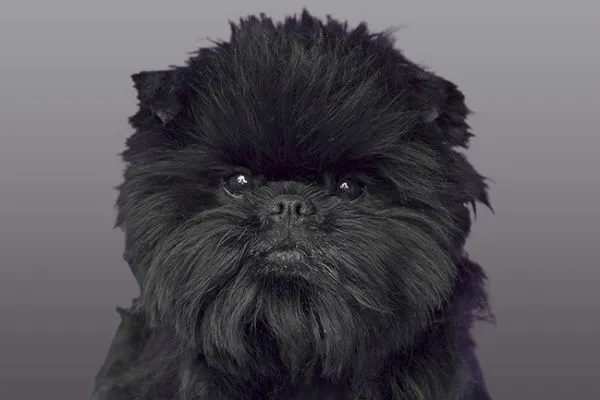 AffenpinscherThe Affenpinscher, meaning “monkey-like terrier,” lives up to its name with its intelligent and somewhat mischievous demeanor. Despite their small stature, these dogs are remarkably fearless and make excellent watchdogs, alerting you to any unexpected visitors. Their wiry coat sheds very little and is known for having minimal “doggy odor.” A twice-weekly brushing session with a slicker brush and comb is typically sufficient to keep their shaggy appearance neat. This low-maintenance breed is also celebrated for its humorous personality, bringing laughter and companionship to its owners. For those seeking small dog breeds that don’t shed and are hypoallergenic, the Affenpinscher is a charming contender.
AffenpinscherThe Affenpinscher, meaning “monkey-like terrier,” lives up to its name with its intelligent and somewhat mischievous demeanor. Despite their small stature, these dogs are remarkably fearless and make excellent watchdogs, alerting you to any unexpected visitors. Their wiry coat sheds very little and is known for having minimal “doggy odor.” A twice-weekly brushing session with a slicker brush and comb is typically sufficient to keep their shaggy appearance neat. This low-maintenance breed is also celebrated for its humorous personality, bringing laughter and companionship to its owners. For those seeking small dog breeds that don’t shed and are hypoallergenic, the Affenpinscher is a charming contender.
Basenji: The “Barkless” Hound
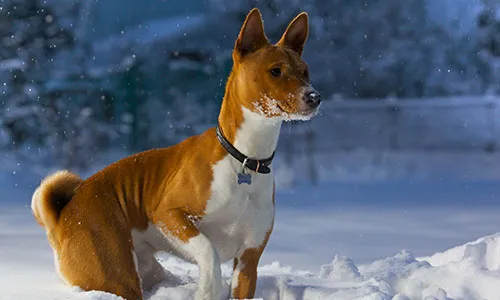 BasenjiFor individuals who admire the spirited nature of hounds but are averse to their typical shedding and strong odors, the Basenji presents an excellent alternative. These dogs shed minimally, and their short, fine coat requires little more than an occasional brushing. Basenjis are also famously quiet, making them well-suited for apartment living, provided they receive adequate daily exercise and playtime. Their unique vocalizations, often described as a “yodel,” are a distinctive trait. Discovering small and medium dogs that dont shed reveals the Basenji as a fascinating option.
BasenjiFor individuals who admire the spirited nature of hounds but are averse to their typical shedding and strong odors, the Basenji presents an excellent alternative. These dogs shed minimally, and their short, fine coat requires little more than an occasional brushing. Basenjis are also famously quiet, making them well-suited for apartment living, provided they receive adequate daily exercise and playtime. Their unique vocalizations, often described as a “yodel,” are a distinctive trait. Discovering small and medium dogs that dont shed reveals the Basenji as a fascinating option.
Bichon Frise: The Fluffy Companion
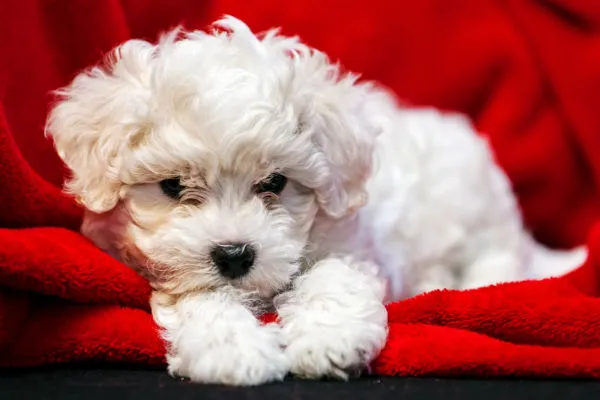 Bichon FriseThe Bichon Frise is a true example of a non-shedding small dog breed. These playful and affectionate dogs are often considered an ideal dog breed for people with allergies due to their minimal shedding. However, they are not maintenance-free. The Bichon Frise’s continuously growing hair requires frequent professional grooming and daily brushing to maintain their signature “powder-puff” look and prevent matting. Their cheerful disposition makes the grooming effort well worth it for many owners.
Bichon FriseThe Bichon Frise is a true example of a non-shedding small dog breed. These playful and affectionate dogs are often considered an ideal dog breed for people with allergies due to their minimal shedding. However, they are not maintenance-free. The Bichon Frise’s continuously growing hair requires frequent professional grooming and daily brushing to maintain their signature “powder-puff” look and prevent matting. Their cheerful disposition makes the grooming effort well worth it for many owners.
Bolognese: The Italian Lap Dog
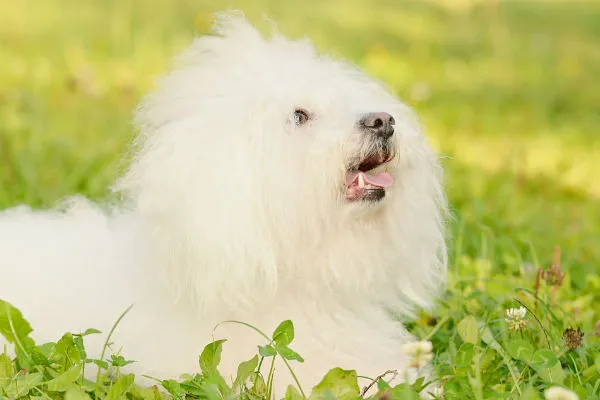 BologneseSimilar to the Bichon Frise, the Bolognese boasts a distinctive fluffy coat that is composed of hair rather than fur, contributing to its non-shedding nature. While the Bolognese doesn’t shed significantly, dead hair needs to be brushed out regularly. Their coat demands daily grooming to keep these lovable lap dogs looking their best and to prevent tangles. Their gentle and affectionate nature makes them wonderful companions.
BologneseSimilar to the Bichon Frise, the Bolognese boasts a distinctive fluffy coat that is composed of hair rather than fur, contributing to its non-shedding nature. While the Bolognese doesn’t shed significantly, dead hair needs to be brushed out regularly. Their coat demands daily grooming to keep these lovable lap dogs looking their best and to prevent tangles. Their gentle and affectionate nature makes them wonderful companions.
Brussels Griffon: The Alert Toy Breed
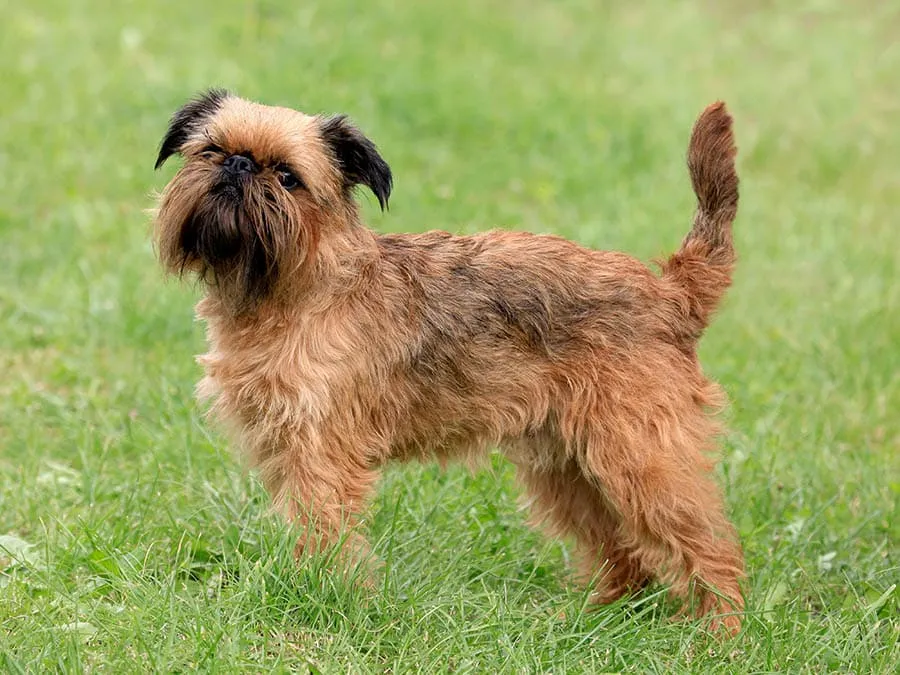 Brussels GriffonDon’t let their small size fool you; the Brussels Griffon is not a dog that requires excessive pampering. Both the smooth-coated and rough-coated varieties of this breed benefit from regular grooming and are minimal shedders. Their compact size means that a daily walk and indoor play sessions are usually sufficient to meet their exercise requirements. This loyal breed thrives in the company of families who spend a good amount of time at home.
Brussels GriffonDon’t let their small size fool you; the Brussels Griffon is not a dog that requires excessive pampering. Both the smooth-coated and rough-coated varieties of this breed benefit from regular grooming and are minimal shedders. Their compact size means that a daily walk and indoor play sessions are usually sufficient to meet their exercise requirements. This loyal breed thrives in the company of families who spend a good amount of time at home.
Chinese Crested: The Unique Hairless Option
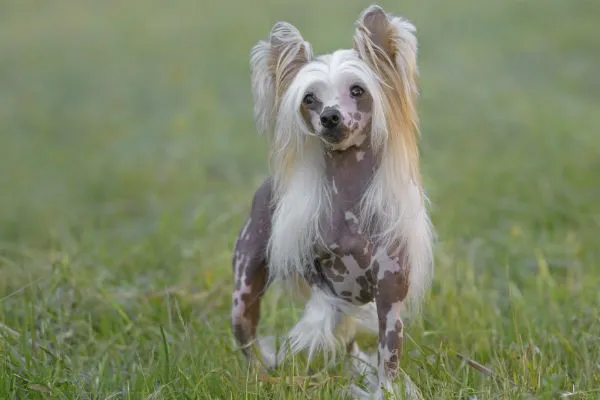 Chinese CrestedOne of the most direct ways to avoid shedding is to opt for a small hairless dog breed. The Chinese Crested comes in two coat variations: hairless and powderpuff. The hairless variety has hair only on its head, tail, and feet, while the powderpuff type is covered in a fine coat that sheds very minimally. Hairless breeds require special attention to their skin, including protection from the sun and cold, as they are more susceptible to irritations. Understanding small size dogs that don’t shed includes considering breeds like the Chinese Crested.
Chinese CrestedOne of the most direct ways to avoid shedding is to opt for a small hairless dog breed. The Chinese Crested comes in two coat variations: hairless and powderpuff. The hairless variety has hair only on its head, tail, and feet, while the powderpuff type is covered in a fine coat that sheds very minimally. Hairless breeds require special attention to their skin, including protection from the sun and cold, as they are more susceptible to irritations. Understanding small size dogs that don’t shed includes considering breeds like the Chinese Crested.
Coton de Tulear: The “Cotton Ball” Dog
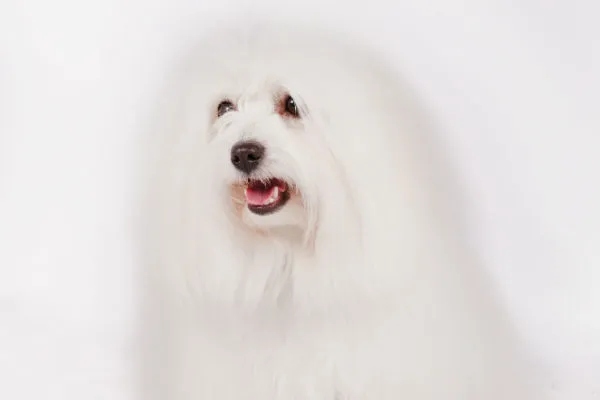 Coton de TulearThe Coton de Tulear is characterized by its distinctive, long, fluffy coat, which is considered hypoallergenic. This makes them an excellent choice for allergy sufferers and for individuals seeking a small dog that doesn’t shed excessively. While Cotons require daily grooming to maintain their coat’s condition, their lighthearted and gentle personalities make the effort worthwhile for many owners.
Coton de TulearThe Coton de Tulear is characterized by its distinctive, long, fluffy coat, which is considered hypoallergenic. This makes them an excellent choice for allergy sufferers and for individuals seeking a small dog that doesn’t shed excessively. While Cotons require daily grooming to maintain their coat’s condition, their lighthearted and gentle personalities make the effort worthwhile for many owners.
Havanese: The Cuban Charmer
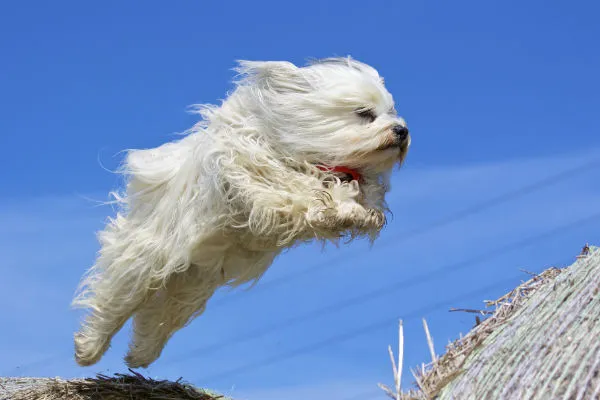 HavaneseNative to Cuba, Havanese dogs offer their owners a delightful blend of spunky charm and a non-shedding coat. This means less time spent lint-rolling furniture and more time enjoying playful moments with your furry friend. Their coat requires weekly brushing and regular baths to keep it clean and healthy. The Havanese is a lively and engaging companion.
HavaneseNative to Cuba, Havanese dogs offer their owners a delightful blend of spunky charm and a non-shedding coat. This means less time spent lint-rolling furniture and more time enjoying playful moments with your furry friend. Their coat requires weekly brushing and regular baths to keep it clean and healthy. The Havanese is a lively and engaging companion.
Maltese: The Ancient Lap Dog
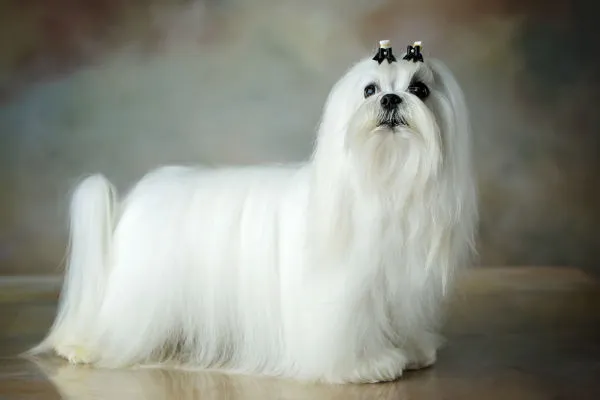 MalteseFor millennia, Maltese dogs have captivated their human companions with their elegance and affectionate nature. This ancient breed from Malta has maintained its appeal, partly due to its long, white coat that sheds very little, making it an ideal lap dog. Regular brushing is essential to prevent mats from forming in their silky hair, and occasional baths help keep them clean and free of dirt.
MalteseFor millennia, Maltese dogs have captivated their human companions with their elegance and affectionate nature. This ancient breed from Malta has maintained its appeal, partly due to its long, white coat that sheds very little, making it an ideal lap dog. Regular brushing is essential to prevent mats from forming in their silky hair, and occasional baths help keep them clean and free of dirt.
Lhasa Apso: The Tibetan Guardian
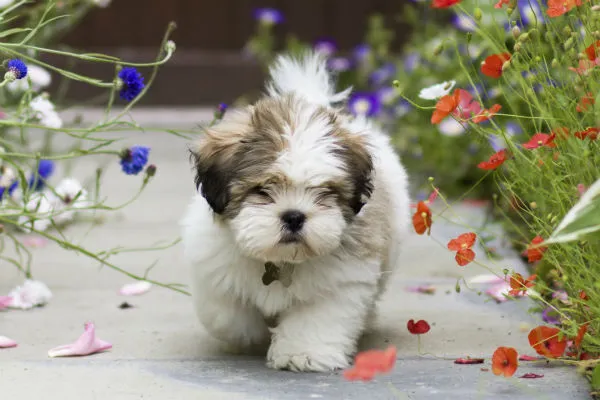 Lhasa ApsoOriginating from Tibet, the Lhasa Apso makes an excellent companion dog. These dogs are calm yet playful, enjoying both brisk walks and relaxing moments on their owner’s lap. Lhasa Apsos are non-shedders, but their coat requires consistent maintenance. Many owners opt for a shorter “puppy cut” to simplify grooming and avoid the daily brushing of their long hair.
Lhasa ApsoOriginating from Tibet, the Lhasa Apso makes an excellent companion dog. These dogs are calm yet playful, enjoying both brisk walks and relaxing moments on their owner’s lap. Lhasa Apsos are non-shedders, but their coat requires consistent maintenance. Many owners opt for a shorter “puppy cut” to simplify grooming and avoid the daily brushing of their long hair.
Miniature Schnauzer: The Spirited Terrier
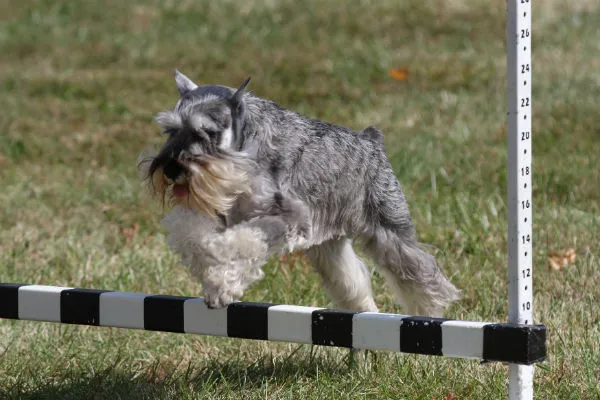 Miniature SchnauzerThe Miniature Schnauzer is a smart, trainable, and cheerful little dog that closely resembles its Standard Schnauzer relative. This Terrier breed sheds very little, and their adaptability allows them to thrive in both urban and rural environments, as long as they are close to their families. Incorporating weekly brushing and regular professional grooming into their routine will help keep Miniature Schnauzers looking their best.
Miniature SchnauzerThe Miniature Schnauzer is a smart, trainable, and cheerful little dog that closely resembles its Standard Schnauzer relative. This Terrier breed sheds very little, and their adaptability allows them to thrive in both urban and rural environments, as long as they are close to their families. Incorporating weekly brushing and regular professional grooming into their routine will help keep Miniature Schnauzers looking their best.
Poodle: The Hypoallergenic Icon
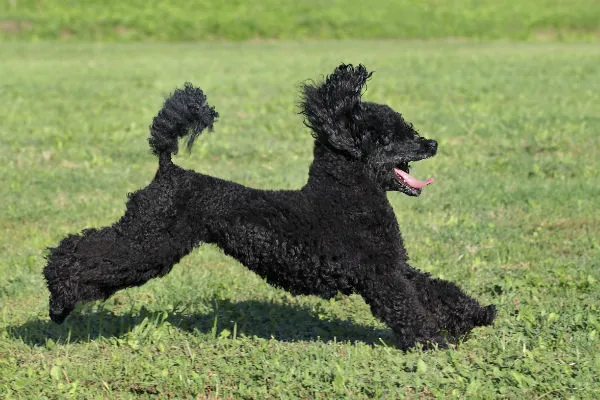 PoodleWhen discussing small dogs that don’t shed, Poodles are often the first breed that comes to mind, and for good reason. Poodles are renowned for being non-shedding and hypoallergenic. Miniature and Toy Poodles offer these desirable qualities in petite, intelligent packages. All Poodles are highly intelligent, making them easy to train, and they possess an active and proud demeanor. Their distinctive coat requires regular professional grooming.
PoodleWhen discussing small dogs that don’t shed, Poodles are often the first breed that comes to mind, and for good reason. Poodles are renowned for being non-shedding and hypoallergenic. Miniature and Toy Poodles offer these desirable qualities in petite, intelligent packages. All Poodles are highly intelligent, making them easy to train, and they possess an active and proud demeanor. Their distinctive coat requires regular professional grooming.
Scottish Terrier: The Bold Companion
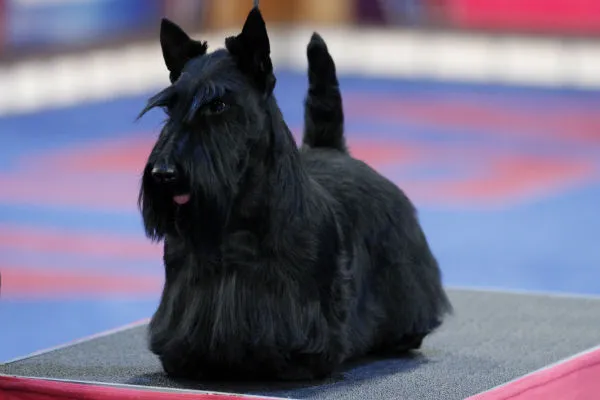 Scottish TerrierThe Scottish Terrier, affectionately known as the Scottie, is a Terrier breed celebrated for its boldness, confidence, and significant personality. Their wiry, weather-resistant coat sheds very little, though they require regular brushing, professional grooming, and occasional hand-stripping to maintain coat health and the breed’s distinctive outline. Scotties are clever and independent dogs with strong prey drives, so owners must exercise caution around smaller animals.
Scottish TerrierThe Scottish Terrier, affectionately known as the Scottie, is a Terrier breed celebrated for its boldness, confidence, and significant personality. Their wiry, weather-resistant coat sheds very little, though they require regular brushing, professional grooming, and occasional hand-stripping to maintain coat health and the breed’s distinctive outline. Scotties are clever and independent dogs with strong prey drives, so owners must exercise caution around smaller animals.
Shih Tzu: The Regal House Pet
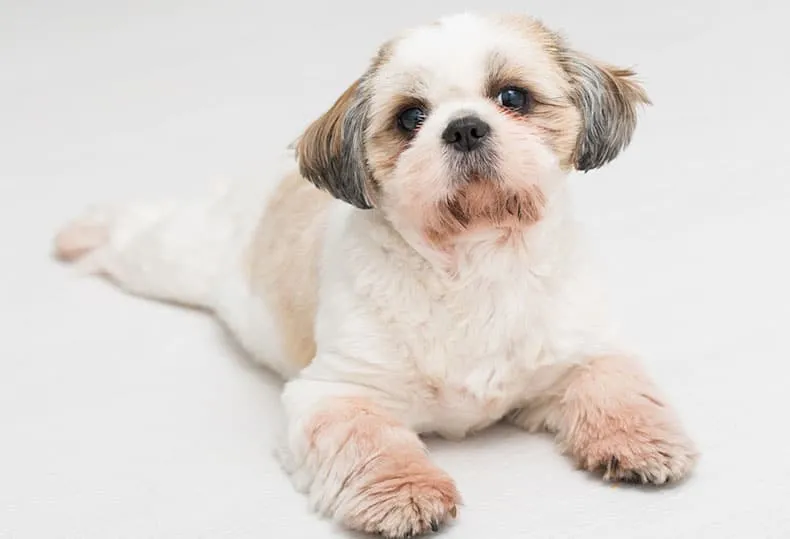 Shih TzuThe Shih Tzu boasts a long and distinguished pedigree, having been favored house pets of royalty. These “little lion dogs” come in a variety of colors and patterns. Their long, silky hair is very low-shedding and appears exceptionally regal when brushed out, befitting their royal ancestry. This sturdy and lively Toy breed carries itself with a proud carriage, thanks to their upright heads and curling tails. Shih Tzus were bred to be indoor companions, and their gentle, trusting nature makes them exceptional pets.
Shih TzuThe Shih Tzu boasts a long and distinguished pedigree, having been favored house pets of royalty. These “little lion dogs” come in a variety of colors and patterns. Their long, silky hair is very low-shedding and appears exceptionally regal when brushed out, befitting their royal ancestry. This sturdy and lively Toy breed carries itself with a proud carriage, thanks to their upright heads and curling tails. Shih Tzus were bred to be indoor companions, and their gentle, trusting nature makes them exceptional pets.
West Highland White Terrier: The Cheerful Westie
 West Highland White TerrierThe coarse, white coat of the West Highland White Terrier, affectionately known as the Westie, sheds very little. This sturdy little dog is intelligent, loyal, happy, and highly entertaining. They are curious dogs with moderate energy levels and an independent streak common among Terriers, which can sometimes present a training challenge.
West Highland White TerrierThe coarse, white coat of the West Highland White Terrier, affectionately known as the Westie, sheds very little. This sturdy little dog is intelligent, loyal, happy, and highly entertaining. They are curious dogs with moderate energy levels and an independent streak common among Terriers, which can sometimes present a training challenge.
Xoloitzcuintli: The Ancient Mexican Hairless
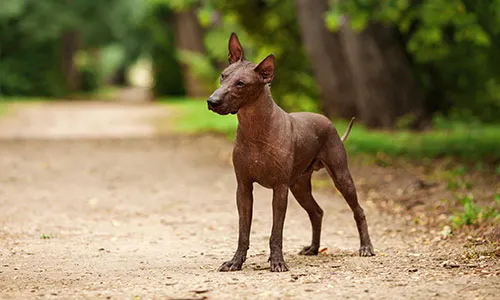 XoloitzcuintliAlso recognized as the Mexican Hairless, the Xoloitzcuintli is an ancient and rare breed that can be either hairless or coated. The hairless variety typically has a small amount of hair on its head, while the coated variety possesses a very short, fine coat that sheds minimally. As with any hairless breed, the Xolo requires extra attention to its skin to protect it from the elements. Xolos make attentive watchdogs and affectionate companions. While they enjoy physical activities, they are known for their tranquil personality within the home.
XoloitzcuintliAlso recognized as the Mexican Hairless, the Xoloitzcuintli is an ancient and rare breed that can be either hairless or coated. The hairless variety typically has a small amount of hair on its head, while the coated variety possesses a very short, fine coat that sheds minimally. As with any hairless breed, the Xolo requires extra attention to its skin to protect it from the elements. Xolos make attentive watchdogs and affectionate companions. While they enjoy physical activities, they are known for their tranquil personality within the home.
Yorkshire Terrier: The Spirited Toy Breed
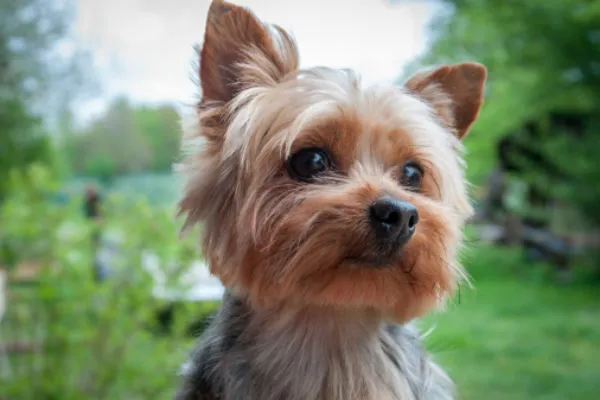 Yorkshire TerrierSprightly, tomboyish, and affectionate, the Yorkshire Terrier, often called the Yorkie, is a Toy breed brimming with personality. These spunky lap dogs are popular for their lively nature and their non-shedding, silky coats that are beautiful when brushed daily. Don’t let their regal appearance fool you; Yorkies have working-class roots, having once hunted rats. Today, they are just as happy to cuddle on a lap as they are to show off their fearless terrier spirit. This is a prime example of dog breeds that don’t shed and are small.
Yorkshire TerrierSprightly, tomboyish, and affectionate, the Yorkshire Terrier, often called the Yorkie, is a Toy breed brimming with personality. These spunky lap dogs are popular for their lively nature and their non-shedding, silky coats that are beautiful when brushed daily. Don’t let their regal appearance fool you; Yorkies have working-class roots, having once hunted rats. Today, they are just as happy to cuddle on a lap as they are to show off their fearless terrier spirit. This is a prime example of dog breeds that don’t shed and are small.
Other Low-Shedding Terrier Breeds
The Terrier group is a treasure trove of small dogs that shed minimally or not at all. Breeds with wiry and coarse coats tend to shed less than those with softer fur, making them ideal choices for individuals who want to minimize shedding in their homes. Beyond the breeds already mentioned, consider these other low-shedding Terrier options:
- Border Terrier: Known for their friendly and outgoing nature, Border Terriers have a rough, wiry coat that requires regular grooming but sheds minimally.
- Cairn Terrier: These sturdy, energetic dogs have a double coat that is weather-resistant and sheds very little. They are adaptable and make great family pets.
- Dachshund (Wirehaired): While Dachshunds come in various coat types, the wirehaired variety is particularly low-shedding. Their distinctive shape and bold personality make them unique companions.
- Irish Terrier: Though often considered medium-sized, the Irish Terrier has a wiry coat that sheds minimally and requires regular grooming. They are known for their spirited and loyal nature.
- Rat Terrier: These agile and intelligent dogs come in various coat types, with the wirehaired variety being low-shedding. They are energetic and make excellent companions for active individuals.
- Soft-Coated Wheaten Terrier: Despite their name, these dogs have a single coat that is considered hypoallergenic and sheds very little. They are known for their joyful and friendly disposition.
Considerations for Non-Shedding Small Dogs
While the allure of a hair-free home is strong, it’s crucial to understand that choosing from a list of small dogs that don’t shed comes with its own set of responsibilities.
- Grooming Needs: “Non-shedding” often equates to “high grooming.” Breeds with continuously growing hair, like Poodles or Bichons, require regular professional grooming to prevent matting and maintain coat health. Daily brushing is often necessary even for breeds that shed minimally.
- Hypoallergenic Myth: While many low-shedding breeds are considered more suitable for allergy sufferers, no dog is truly 100% hypoallergenic. Allergies are often triggered by dander (skin flakes) and saliva, not just hair. It’s always recommended to spend time with a breed before committing to ensure it doesn’t trigger allergies.
- Diet and Health: A high-quality diet plays a significant role in the overall health of your dog’s coat and skin, which can indirectly affect shedding and dander production. Always ensure your dog is fed a balanced and nutritious diet.
- Veterinary Care: Regular check-ups with a veterinarian are essential for monitoring your dog’s health, including the condition of their skin and coat. Early detection of any health issues can prevent potential problems.
- Responsible Sourcing: When looking for any dog breed, always prioritize reputable breeders or adoption agencies. Purchasing from a reliable source ensures you are getting a healthy dog from ethical practices, which is crucial for the well-being of both the dog and the owner.
Choosing a small dog that doesn’t shed can significantly enhance your living environment and overall enjoyment of pet ownership. By carefully researching these breeds and understanding their specific needs, you can find a devoted companion that fits seamlessly into your lifestyle and brings endless joy without the constant battle against shedding fur.
